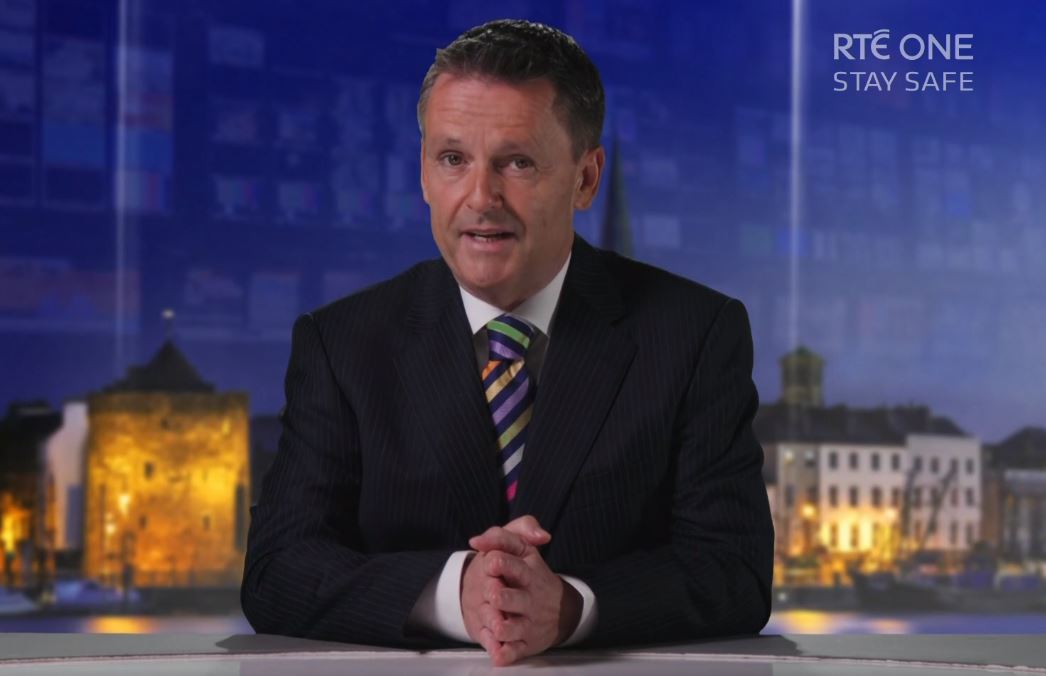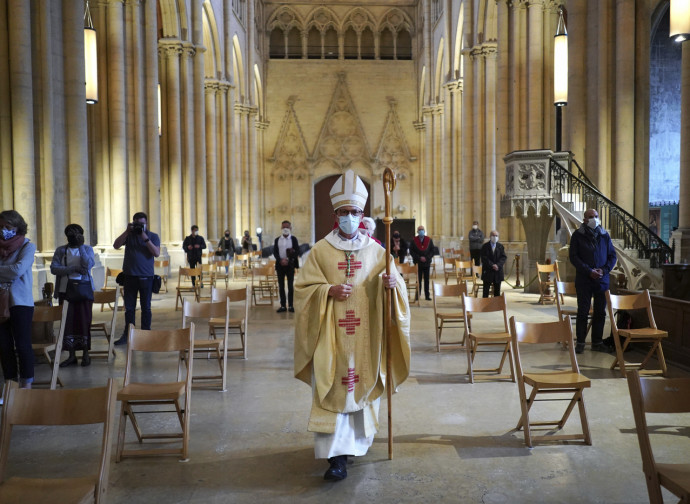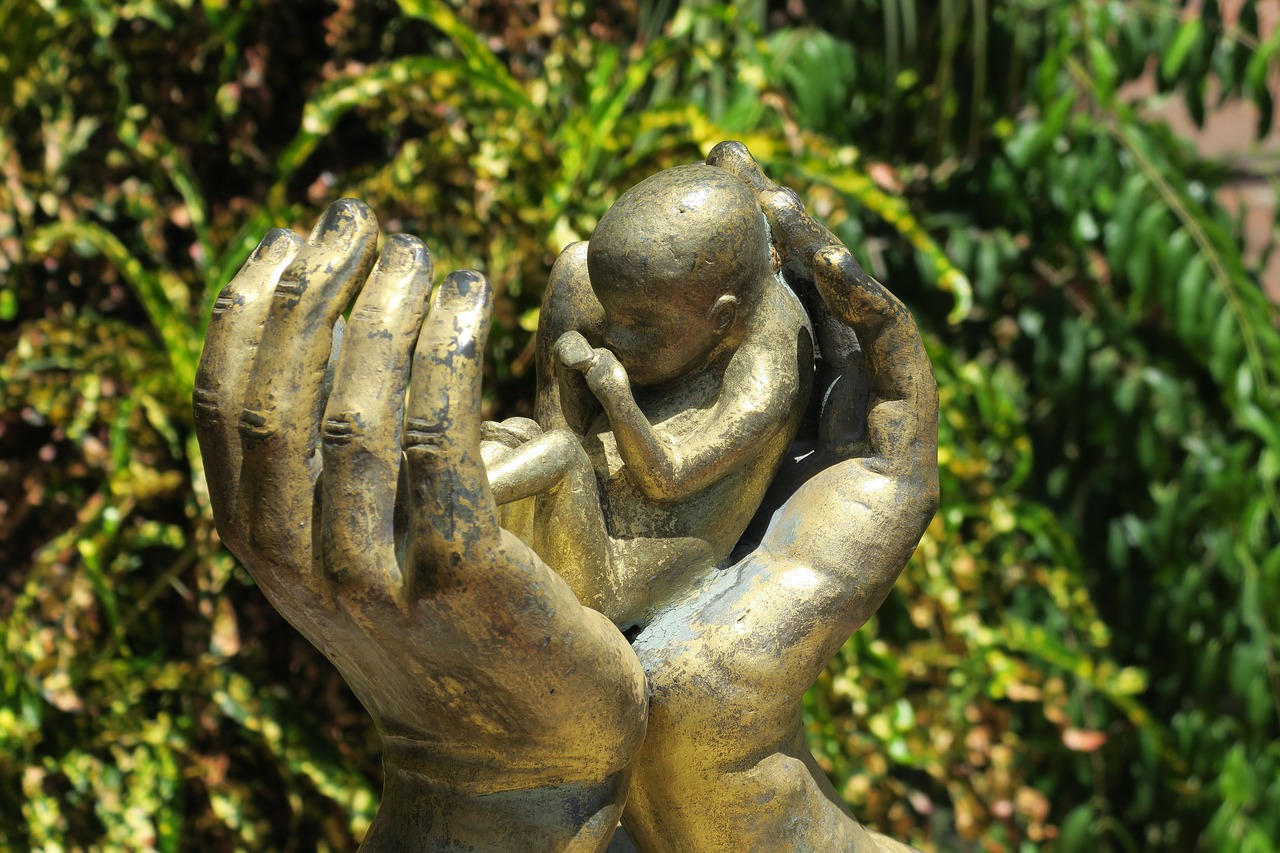
Minister Josepha Madigan has repeated her call for a referendum to remove Article 41.2 on protecting mothers working at home.
The Article states: “In particular, the State recognises that by her life within the home, woman gives to the State a support without which the common good cannot be achieved. The State shall, therefore, endeavour to ensure that mothers shall not be obliged by economic necessity to engage in labour to the neglect of their duties in the home.”
Minister Madigan said the article, “which refers to a woman’s life within the home, is wholly discriminatory. It is also completely at odds with this Government’s policy regarding equality of opportunity and gender equality.”
She continued: “The Constitution does not seek to define the place of men. It therefore follows that it should not seek to define the place of women. Our Constitution should not narrowly define our roles in society.
“In today’s modern Ireland, both mothers and fathers carry out important family duties in the home, as well as grandparents, siblings, carers, and others. While many parents do choose to stay at home to raise their families, we should not discriminate against working parents, and working mothers in particular, who make an invaluable contribution to Irish society. Therefore, I would like to see this anachronistic Article consigned to history. It does not represent the values and lives of modern Irish women and modern Irish families.

The chair of the Oireachtas Committee on Media Niamh Smyth has called on RTÉ to remove a controversial sketch from its media player that portrayed God as having raped Mary, the mother of Jesus.
Ms Smyth, who is also Fianna Fail’s party’s spokeperson for Arts and Culture, described the sketch which has prompted almost 6,000 complaints to RTÉ as “deeply offensive and blasphemous”.
She acknowledged that RTÉ had apologised but she said the apology did not go far enough.
“An apology is meaningless while the clip remains available. I implore the RTÉ Editorial Standards Board who are due to make recommendations this Friday after reviewing the broadcast to remove the offending clip immediately,” she said.

An auxiliary Bishop in Nigeria and his driver were released by their abductors Jan. 1 after being kidnapped five days earlier.
Bishop Moses Chikwe of Owerri was “looking and feeling very weak from the traumatic experience”, according to Archbishop John Obinna.
He said the bishop’s driver had been taken to the hospital for treatment of a deep cut to his hand, received from the kidnappers.
Chikwe’s kidnapping came less than two weeks after the kidnapping and release in Imo state of Father Valentine Oluchukwu Ezeagu, a member of the Sons of Mary Mother of Mercy Congregation. The priest was stopped and taken by armed men Dec. 15 as he was driving to his father’s funeral in Anambra state, north of Imo. He was released unharmed the next day.
Chikwe remains the first Catholic bishop to be kidnapped in Nigeria since the Boko Haram insurgency began in 2009. Over the years, several priests and hundreds of others have been kidnapped. These included cases involving groups of school students.

Former RTÉ news presenter Aengus Mac Grianna has issued a fulsome apology over a sketch which has angered believers and ran as part of the station’s New Year’s Eve countdown show.
The piece has generated almost 5,000 complaints to RTÉ.
The mock bulletin stated that God had been arrested on charges of sexual harassment for “forcing himself on a young Middle Eastern migrant and allegedly impregnating her against her will”.
Mr Mac Grianna posted the following message on social media: “Personal apology: I wish to apologise concerning my participation in the Waterford Whispers News item on the NYE show on RTE 1 on New Year’s Eve. Truly I am deeply sorry for the offence, distress and hurt caused. It was wrong for me. It was wrong of me. Aengus Mac Grianna.”
Meanwhile, RTÉ has said that the station’s Editorial Standards Board is “reviewing the broadcast with regard to compliance with RTÉ’s Journalism & Content Guidelines 2020, as well as RTÉ’s statutory and regulatory obligations under the Broadcasting Act 2009 and the relevant codes of the Broadcasting Authority of Ireland”.
RTÉ said that recommendations by the board are expected by this Friday.
There were also calls for the segment to be removed from the RTÉ Player, however RTÉ said a decision on this will be dependent on the recommendations of the editorial board.

A 25-year-old Edmonton man was charged with a ‘hate crime’ after he allegedly disrupted Mass at a church and briefly posted an obscenity-laden video online.
On Dec. 13, three men attended the 11 a.m. Mass registering under false names. Shortly after Communion, the suspect went to the podium just as the pastor, Father George Puramadathil, was clearing the sacred vessels from the altar.
The man’s speech was incoherent at first, but “as this person continued his rant, we began to understand the profanities, the extremely, extremely vulgar language that he was using,” said one mass attendee.
After Fr Puramadathil asked him to leave, the man left the altar “and right there, in front of the first pew, he dropped his pants, exposed himself, front and back, right in front of the family with two babies,” said a member of the parish council.
The suspect also filmed himself. The video was uploaded online and has since been taken down.
At a Mass at the parish Dec. 20, Edmonton Archbishop Richard Smith called the incident a criminal act and a sacrilege.
Police report there were 37 hate-related charges laid in Edmonton in 2020.
Nationally, ‘hate crimes’ abated slightly in 2018, with a 13 percent drop in police-reported incidents, according to Statistics Canada. Religion is a significant motivator, with 36 percent of hate crimes directed at religious targets.

Church leaders in England have welcomed that public worship may continue even as a new lockdown has been announced by the Government.
Prime Minister, Boris Johnson said everyone in England must stay at home except for permitted reasons during a new coronavirus lockdown expected to last until mid-February.
All schools and colleges will close to most pupils and switch to remote learning from Tuesday.
Communal worship and life events like funerals and weddings can continue, however, subject to limits on attendance.
The Catholic Archbishop of Westminster, Vincent Cardinal Nichols welcomed the exemption for religious worship.
“The regular practice of our faith in God is a source of personal resilience & dedicated service of those in need, both vital in these difficult times. I am glad no measures have been introduced to obstruct or curtail this essential source of energy for the common good,” he said on social media.

The HSE has reinstated the use of the word ‘women’ in describing who should go for cervical screening, after controversially replacing it a year ago.
The advice originally mentioned women alone, but this was quietly replaced by “anyone with a cervix” in December 2019 in order to be more inclusive to trans people.
The new wording states: “Women and people with a cervix between the age of 25 and 65 should go for regular cervical screening when it’s due.”
The National Women’s Council of Ireland (NWCI) said the HSE had made a “mistake” by removing the word ‘women’, and said that “fully inclusive” language should be used in future.
NWCI director Orla O’Connor said the “current language has not achieved this”.
“NWCI and Teni [Transgender Equality Network Ireland] have recommended an immediate amendment to their electronic resources such that sentences that refer to ‘people who have a cervix’ instead read ‘women, transgender men, intersex, and non-binary people with a cervix’,” O’Connor said.

A mock news report on a New Year’s Eve countdown programme said God was “the latest figure” to be implicated in “ongoing sexual harassment scandals”.
The news reader added: “The five-billion-year-old stood accused of forcing himself on a young Middle Eastern migrant and allegedly impregnating her against her will before being sentenced to two years in prison, with the last 24 months suspended”.
The sketch showed an old man dressed as “God” being led away by a garda and shouting: “It was 2,000 years ago.”
Catholic leaders swiftly condemned the sketch. Archbishop of Armagh Eamon Martin tweeted his shock that the makers of the show “didn’t realise how deeply offensive was” the mocking ‘news report’.
He added: “This outrageous clip should be removed immediately and denounced. To broadcast such a deeply offensive and blasphemous clip about God and our blessed mother Mary during the Christmas season . . . is insulting to all Catholics and Christians.”
Archbishop-elect of Dublin Dermot Farrell said he was “deeply disturbed” by the segment and a “discourse which fails to respect the victims of all ages and genders of this most degrading of crimes has not any place in our world.”
In a statement, the broadcaster acknowledged that some viewers were offended by the sketch and said that around 1,100 complaints have been received so far.
It said: “RTÉ recognises that matters which can cause offence naturally differ from person to person, within comedy and satire in particular.
“Having reviewed the feedback and complaints received up to this point, RTÉ wishes to apologise to those who were offended by the segment.
The clip will not be removed from the RTÉ Player, but a warning will be attached to the footage to advise viewers that the material may cause offence.

The Vatican’s diplomatic presence in Hong Kong – and the Church as a whole – is coming under mounting pressure as Beijing moves to extinguish opposition voices in the city under a new national security law.
In May, two Chinese nuns who work at the mission were arrested by mainland authorities during a visit home to Hebei province. The nuns, in their 40s, were detained for three weeks before being released to house arrest without being charged. They are forbidden to leave the mainland. Meanwhile, Western diplomats say, Chinese security agents have stepped up surveillance of the Holy See’s mission in recent months.
The arrests, which haven’t been previously reported, are viewed by top clerics in China and in the Vatican as a sign Beijing wants the mission shut. It lacks official standing because the Holy See and China haven’t established formal diplomatic ties. While priests are sometimes arrested on the mainland, “it is highly unusual for nuns to be detained,” said another of the clerics, who has long-time contacts on the mainland. “Normally they are left alone.”

On Wednesday, Pope Francis’s home country of Argentina legalized abortion, after the senate approved a bill presented by President Alberto Fernandez.
Pope Francis referred specifically to the abortion debate in Argentina three times since Fernandez presented the bill in November, through three private letters that later became public. In his letters, the pope noted that the pro-life position is a “scientific” issue, and not a religious one.
The law allows minors as young as 15 to have an abortion without parental consent.
Several pro-choice senators argued that their Catholic upbringing led them to their decision, saying they were protecting the life of the mother.
The new law allows for abortion on demand up until the 14th week of pregnancy, and woman can have an abortion up to birth if her mental health is at risk, although it does not define the term.
Though hospitals and clinics can refuse to perform abortions, they must cover the expenses for a woman to receive it somewhere else.
Fernandez had promised to make abortion “legal, safe and free” in the campaign trail, and the first decision by his health minister was to create a protocol making abortion more widely available in the country if a pregnancy was the result of rape or the life of the mother were at risk.
https://cruxnow.com/church-in-the-americas/2020/12/argentine-senate-legalizes-abortion-in-pope-franciss-homeland/